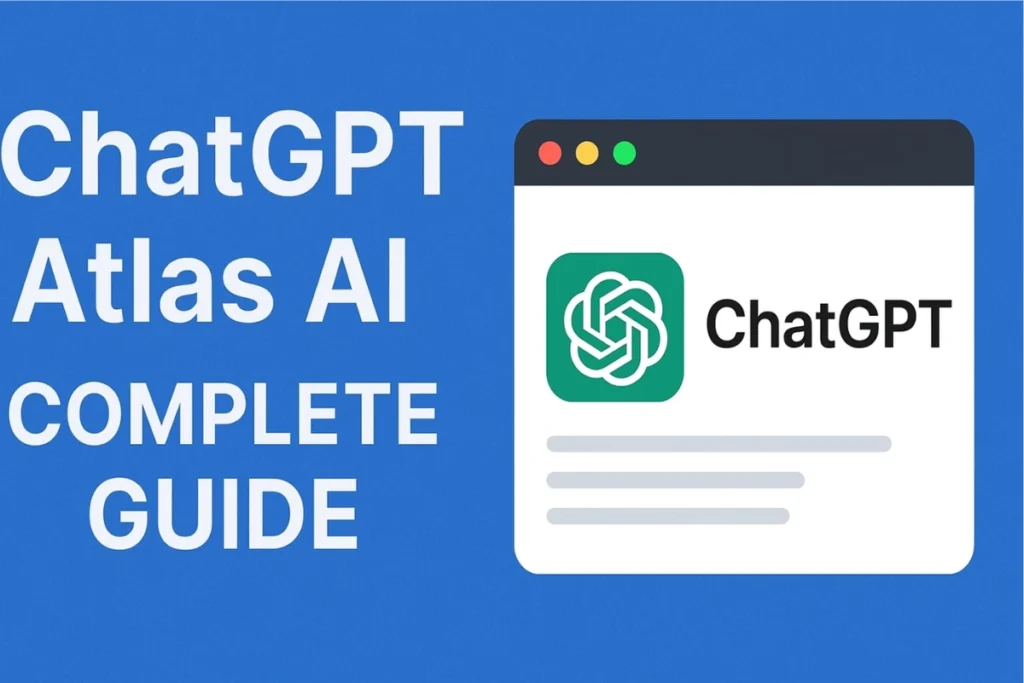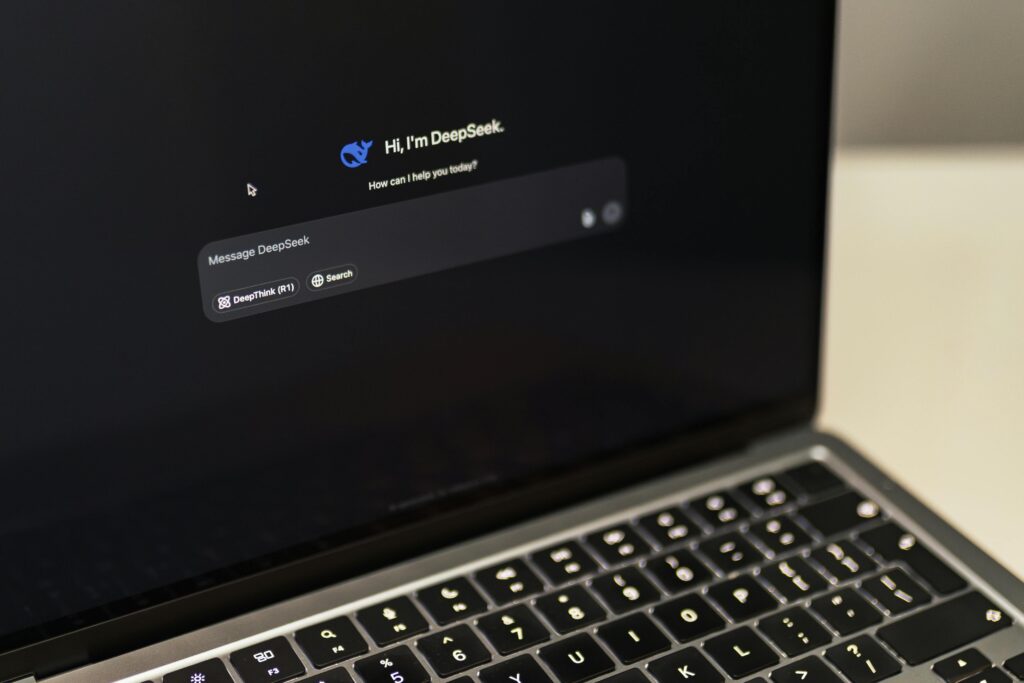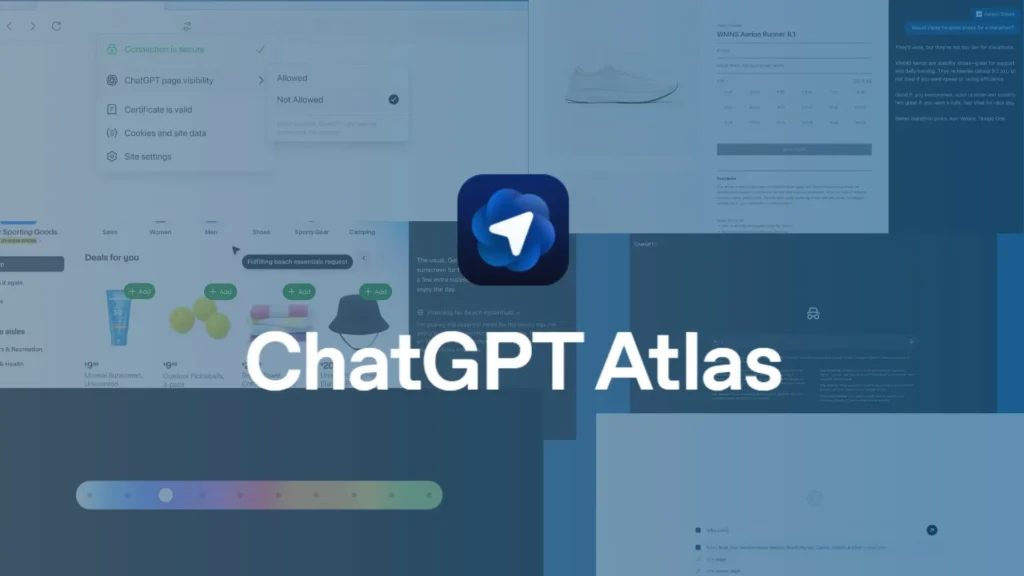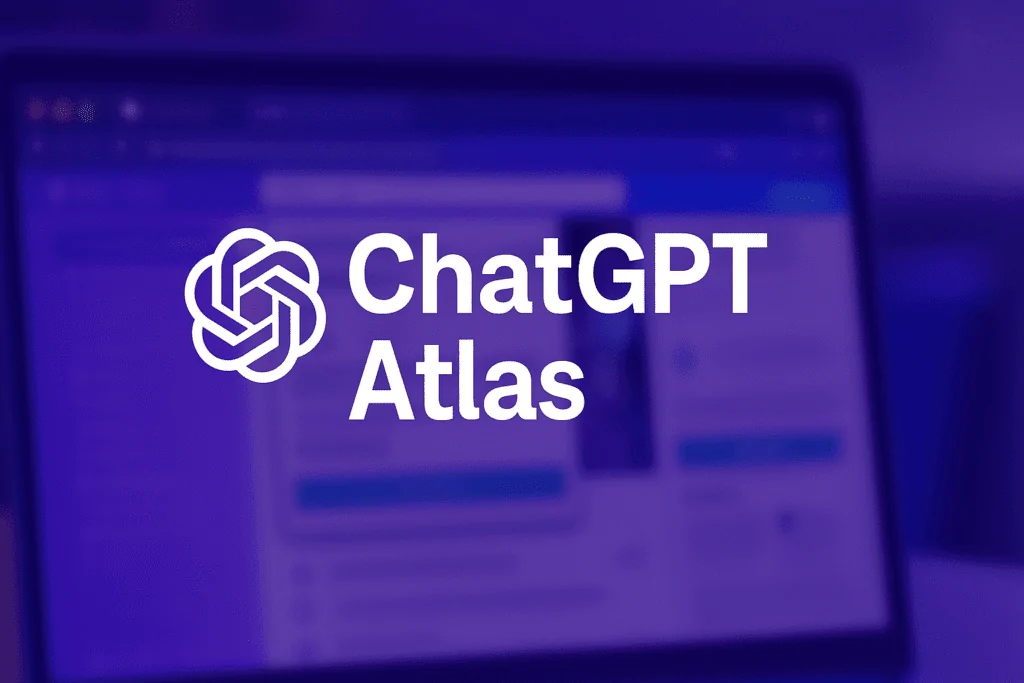Table of Contents
OpenAI Introduces Atlas: A New Chapter in AI-Powered Browsing
OpenAI, the U.S.-based artificial intelligence firm behind ChatGPT, has announced the release of ChatGPT Atlas, its first AI-driven web browser. The tool marks a major step in reshaping how people search for and interact with information online. The launch, unveiled this week, represents OpenAI’s effort to merge conversational AI with real-time web browsing — directly challenging Google’s dominance in search and browser markets.
Atlas will initially be available for macOS, with plans to expand to Windows, iOS, and Android in the coming months. Unlike many new products limited to paid tiers, OpenAI confirmed that Atlas will be accessible to free users at launch.
The debut of ChatGPT Atlas could have far-reaching implications for digital innovation in Africa. With AI adoption growing rapidly across the continent — particularly in Ghana, Kenya, Nigeria, and South Africa — tools like Atlas may redefine how local businesses, journalists, and students access and use information.
In Ghana, where internet penetration surpassed 70% in 2024 (Datareportal), AI-assisted browsing could enhance productivity in research, education, and media. The new browser’s conversational interface allows users to interact with web content naturally, potentially reducing barriers for those less familiar with traditional search engines.
Key Features of ChatGPT Atlas

OpenAI says Atlas was designed to make browsing “conversational, intelligent, and effortless.” Below are its standout features:
- Sidecar Chat Integration:
A built-in chatbot allows users to ask questions about whatever is on their screen — whether it’s an article, spreadsheet, or video — without needing to copy or switch tabs. This design aims to make research and multitasking smoother. - Personalized Search via Browser History:
With user consent, Atlas can access browsing history to generate tailored responses, offering context-aware assistance that improves over time. OpenAI emphasizes that this feature is optional and built with privacy controls. - Agent Mode for Automation:
Premium subscribers (Plus, Pro, and Business tiers) can ask ChatGPT to perform basic web actions automatically — such as filling out online forms, summarizing lengthy articles, or collecting data from multiple pages.
A Competitive Landscape: Browsers as the New AI Frontier
Industry analysts see this move as part of a broader transformation in how browsers function. Google Chrome, which currently commands more than *60% of the global market share, faces new competition from AI-native browsers such as *Perplexity’s Comet and The Browser Company’s Arc (formerly Dia). Both startups have integrated chat-based tools similar to Atlas.
In response, major players like Google and Microsoft have been adding AI capabilities to their browsers, Chrome and Edge. The launch of Atlas intensifies this race — shifting the focus from static search results to interactive, AI-curated experiences.
Statements from OpenAI’s Team
During the product announcement streamed live on Tuesday, Ben Goodger, OpenAI’s Engineering Lead for Atlas, said the goal was to “make browsing feel conversational, intelligent, and effortless.”
Adam Fry, Product Lead at OpenAI, confirmed the inclusion of both sidecar chat and personalized history features, describing Atlas as “a natural evolution of how people interact with knowledge.”
Early Reviews and Technical Challenges
Tech reviewers, including TechCrunch, have tested early builds of Atlas and noted that while the AI performs well in summarizing and answering context-based questions, it still faces challenges with complex automation. Tasks like multi-step form completion or cross-platform data extraction remain inconsistent — a limitation seen across many AI web agents.
Despite these hurdles, experts view Atlas as a pivotal step toward fully autonomous browsing tools, capable of functioning as “digital research assistants.”
Implications for Ghana’s Tech Ecosystem

For Ghana’s growing tech scene, the arrival of ChatGPT Atlas could spark new experimentation in AI-driven applications. Local startups such as Kwame AI and Bisa Health App have already explored integrating conversational models into customer service and telemedicine. Atlas may provide developers with a more interactive platform to test and deploy AI-based web tools.
Moreover, in journalism and academia — sectors where quick access to verified data is essential — AI browsers could streamline fact-checking and improve information accuracy. Universities in Accra and Kumasi are already incorporating AI literacy into curricula, suggesting strong potential adoption.
A Step Toward the Future of Information Access

The launch of ChatGPT Atlas signals a turning point in how humans interface with the web. By merging AI comprehension with browsing, OpenAI positions itself as a direct competitor to traditional search engines while expanding the frontier of user-driven knowledge discovery.
Whether Atlas can sustain reliability and trust at scale remains to be seen. But for Ghanaian professionals, educators, and developers seeking smarter ways to navigate information, this innovation could offer a powerful new tool in the evolving digital landscape.
Read also: OpenAI launches interactive apps in ChatGPT — great news for Tech in Africa

